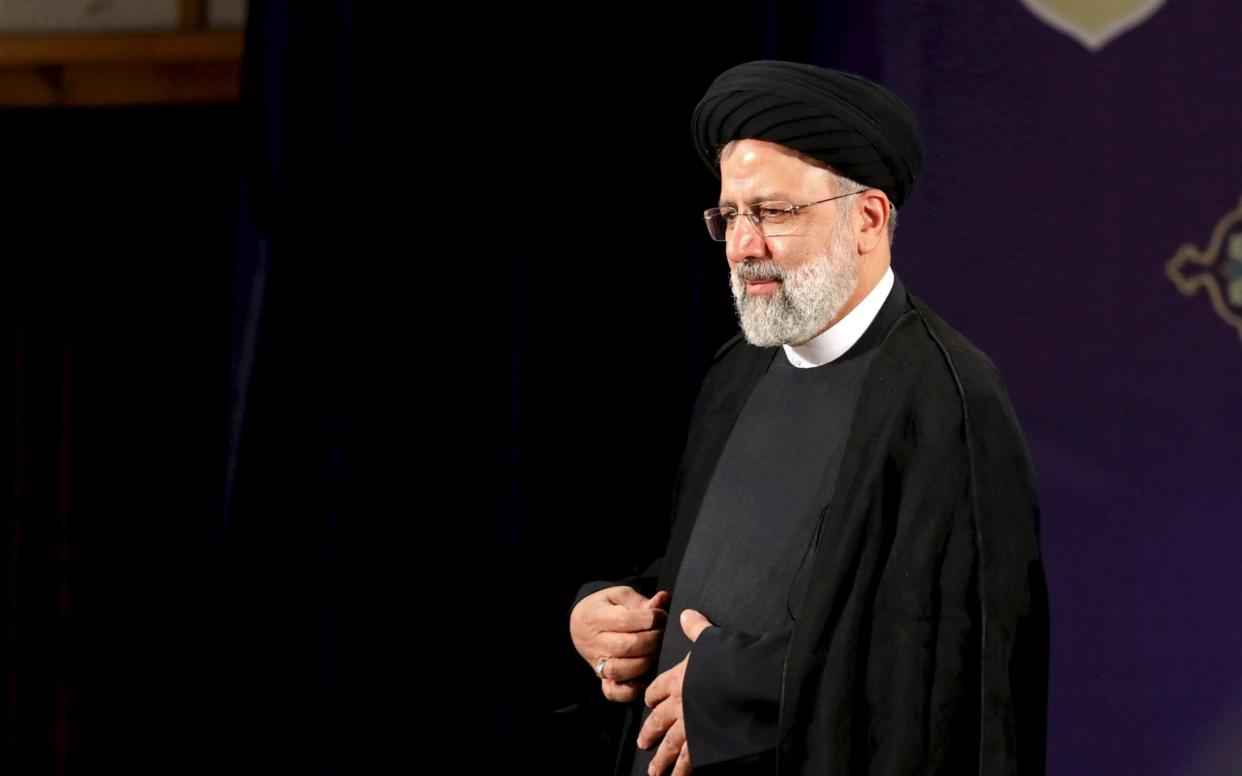Iran approves seven mostly ultraconservative candidates for election next month

- Oops!Something went wrong.Please try again later.
- Oops!Something went wrong.Please try again later.
- Oops!Something went wrong.Please try again later.
Iran on Monday named the conservative head of its judiciary and six others as candidates for the June 18 presidential election, ruling out hopefuls aligned to moderate President Hassan Rouhani.
Chief Justice Ebrahim Raisi, a hardline cleric who ran against Mr Rouhani in 2017, is now seen as the frontrunner for the upcoming election, in which turnout will be seen as a test of legitimacy for the Islamic republic.
Mr Raisi, 60, is believed to be a favourite of Iran’s Supreme Leader Ayatollah Ali Khamenei, who oversees the Guardian Council, a constitutional monitor that vets presidential candidates.
The panel of clerics and jurists considered 590 applications and approved “only seven”, according to Guardian Council spokesman Abbas Ali Kadkhodaei. In 2017, 1,630 people applied to run.
Among the rejected applications was that of former president Mahmoud Ahmedinijad and former Parliament speaker Ali Larinjani.
A conservative who recently rebranded himself a pragmatist and supporter of President Rouhani's nuclear deal, Mr Larinjani indicated on Twitter that he would not challenge the surprise rejection of his candidacy.
Reformists had hoped to vote for pragmatist Eshaq Jahangiri, first-vice president to incumbent President Hassan Rouhani, but he was also excluded. "The disqualification of many qualified people [is] a serious threat to public participation and fair competition among political tendencies, especially reformists," he said in a statement.
Some Iranians also criticised the shortlist, with one user on the popular online chat application Clubhouse saying “the president has already been selected, we’re just waiting for the election itself,” referring to Mr Raisi’s anticipated victory.
Even Mr Raisi indicated he wanted authorities to consider allowing more candidates to run.
“I have made contacts and I am holding consultations to make the election scene more competitive and participatory,” he wrote on Twitter.
President Rouhani is stepping down after serving his constitutional limit of two consecutive terms. The moderate leader made the 2015 agreement with world powers to limit Iran’s nuclear programme his centrepiece policy.
Mr Raisi previously criticised President Rouhani for weakness while negotiating the agreement, accusing him in 2017 of failing "to get adequate guarantees" that the US would honour it.
Former US president Donald Trump quit the deal in 2018, vindicating hardliners who said Washington cannot be trusted.
Widespread public discontent could make for a low turnout, as ordinary Iranians suffer from an economy in ruins under sanctions and tensions with the West around ongoing negotiations to salvage the nuclear deal, which the United States quit in 2018.
